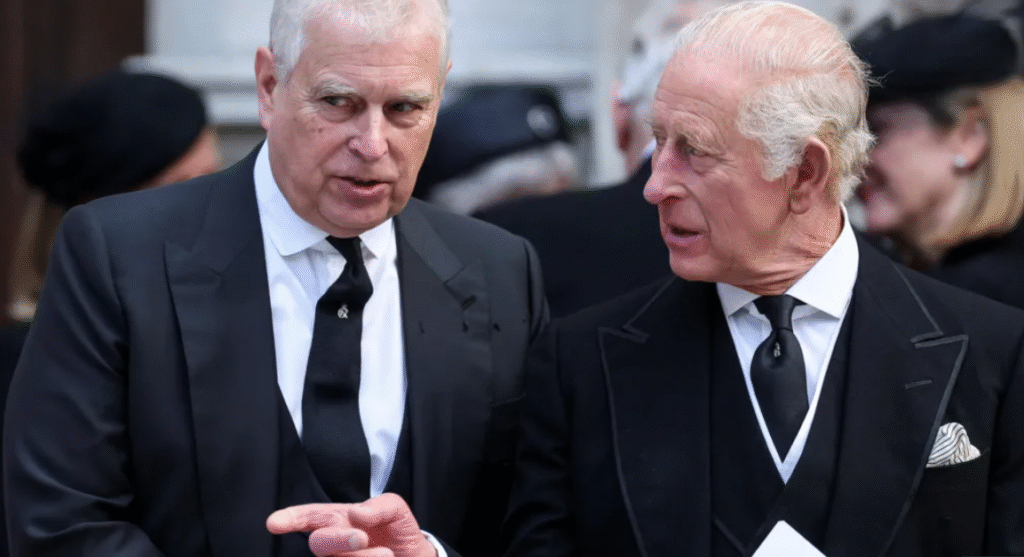
What King Charles III Can (and Can’t) Do about Prince Andrew: Powers, Protocols & Public Pressure
Introduction
In recent years, public attention has turned repeatedly to Prince Andrew, whose controversies continue to cast a shadow over the reputation of the British monarchy. Many wonder: What can King Charles III do to respond or contain the damage? Is there a path to accountability — or is he constitutionally constrained from acting? This article provides a nuanced, up-to-date examination of the King’s options, the institutional constraints, public sentiment, comparative lessons, and potential outcomes.
Background: Prince Andrew’s controversies — a timeline

To understand the current situation, it helps to trace the key events:
| Year | Event |
|---|---|
| 2011-2015 | His friendship with Jeffrey Epstein becomes known; media scrutiny begins |
| 2019 | The sexual abuse lawsuit in the U.S. gains major headlines |
| 2021 | Settlement is reached (reported) with accuser; public backlash intensifies |
| 2022–2025 | Repeated calls for accountability; Andrew’s withdrawal from public duties |
Recent developments (2025) include renewed pressure from media outlets and commentary about a possible “royal response.” While the BBC article touches on this, there is little detail on the timeline or the pattern of attempts at crisis management.
By laying out a clear timeline, readers get clarity on how the controversy has evolved and where we stand now.
Constitutional & legal powers of the monarch
The monarchy’s role in the UK system
The United Kingdom is a constitutional monarchy, meaning the sovereign (King Charles) exercises duties largely as a constitutional figurehead. Real political power lies with Parliament and ministers. The monarch’s direct powers are limited, largely ceremonial, or bound by convention.
What the King cannot do
- He can’t unilaterally pass or enforce laws to punish individuals.
- He cannot remove civil rights, order judicial intervention, or intervene in legal proceedings.
- He is bound by convention to remain politically neutral (i.e. he cannot publicly campaign or favor legal actions).
What the King can influence
- Bestowal and revocation of honours, titles, and patronages
- Granting or withdrawing “royal support” for charitable or institutional roles
- Symbolic exclusion (e.g. not inviting Andrew to certain ceremonies)
- Internal family pressure and negotiation
Historical precedents of royal discipline
Past monarchs have withheld honours or removed patronages from scandal-plagued family members. For instance, King George V distanced from Edward VIII after abdication; more recently, the royal family has stripped titles or severed roles (e.g. in the case of Prince Harry stepping back). But none provide a perfect analogy to an active scandal involving allegations of criminality.
Royal protocol, titles & “working vs non-working” status
Understanding the difference between working royals (those who perform duties on behalf of the Crown) and non-working royals is crucial.
- A non-working royal is free from official public duties, yet may retain titles or patronages.
- The King could withdraw or suspend certain patronages or roles to distance Andrew from formal royal activity.
- Titles like “HRH” (His/Her Royal Highness) or “Prince” are rarely stripped, but not unprecedented in theory.
- The removal of all royal style or title would be dramatic and likely set a controversial precedent.
Protocol also dictates that the monarch (or Royal Household) controls who may participate in high-level state events, receive funding from certain allocated budgets, or be publicly acknowledged in official materials.
Comparisons: How other monarchies handled scandal
Looking across Europe and beyond can be illuminating. Some examples:
- Sweden/Netherlands: Royals facing scandals have had patronages revoked, lost “royal status,” or been excluded from official court roles, though criminal wrongdoing is rare.
- Spain: The King (Juan Carlos) faced serious reputational damage, and the monarchy gradually distanced itself; some titles were abdicated or suspended.
- Belgium, Norway: Cases of financial or personal misconduct have led to soft demotions, removal of honorary positions, or internal quiet handling.
These monarchies demonstrate a spectrum of responses—some punitive, some discreet. The British approach tends toward discretion and minimal public conflict.
Public sentiment: polling, media pressure & legitimacy
A royal’s authority cannot survive in a vacuum of public support.
- Polling data: Recent surveys (YouGov, Ipsos) show fluctuating confidence in the monarchy, often tied to scandals. (For instance, YouGov’s polls have occasionally shown dips in support after high-profile royal controversies.)
- Media & social media: Continuous coverage, viral campaigns, and opinion columns amplify public pressure.
- Legitimacy concerns: The monarchy’s moral authority depends on a perception of integrity. Inaction may be interpreted as tolerance, while heavy-handed moves may appear authoritarian.
Understanding how public opinion is evolving is critical for any royal decision.
Possible courses of action (and their implications)
Below is an expanded look at possible responses the King might choose, along with pros, cons, and risks:
| Option | Description | Pros | Cons / Risks |
|---|---|---|---|
| Status quo | Do nothing officially; rely on private cooling off | Avoids constitutional overreach; minimizes internal conflict | Perceived weakness; ongoing reputational damage |
| Quiet withdrawal of roles | Remove patronages, reduce public affiliation | Symbolic distancing; less drama | Leaves title intact; may not satisfy critics |
| Public condemnation / sanction | Strip titles, exclude from ceremonies | Strong message; satisfies public demand | Sets precedent; possible legal/PR backlash |
| Rehabilitation path | Mediated reconciliation or public service requirement | Offers redemption route; less polarizing | Might be seen as soft; requires public acceptance |
A better version of the BBC article would lay out these options more clearly, examine which are most feasible, and point out likely outcomes in the next 12–24 months.
What it would mean for the monarchy
Whatever decision is taken will ripple through the institution:
- Legitimacy and accountability: A bold move may reinforce that no one is above scrutiny.
- Precedent setting: Future royals may be judged by this benchmark.
- Impact on Charles’s throne: Charles’s own public image and political capital could strengthen or weaken.
- Cohesion within the royal family: Family divisions could become public, with long-term relational consequences.
A stronger article would explore these implications in depth, rather than leaving them implicit.
Frequently Asked Questions
Can the King legally strip Andrew of his royal titles?
Not easily. Titles are traditionally granted by royal warrant, and their removal would be unprecedented and possibly challenged. But as monarch, Charles may have the authority—especially where patronages or “roles” are concerned—to adjust them.
Will this affect Andrew’s heirs?
Typically, titles and honours tie to the person, not the descendants. Unless a title is reassigned or revoked in a broader legal act, heirs may not be directly affected.
What role does Parliament have in royal discipline?
Nominally none—royal matters are not generally subject to parliamentary control, respecting the principle of royal prerogative. However, extreme measures or constitutional reforms might involve legislation.
How have past monarchs handled internal scandal?
Historically, monarchs have employed quiet reprimands, pressure, or exile rather than public trials. In modern times, media scrutiny changes the playing field, but royal households tend toward discretion.
Conclusion & strategic takeaways
In sum:
- King Charles has limited legal authority but significant symbolic power (through patronages, titles, and protocol).
- The safest, most likely path is a quiet retraction of roles and silent distancing, rather than a dramatic public sanction.
- Public sentiment and media pressure will likely shape how far the King is pushed.
- For the monarchy’s future, acting decisively—but proportionally—may help restore trust without overstepping constitutional bounds.
What to watch next: official announcements about Andrew’s titles or patronages; any changes in royal televised appearances; emerging polling data or public demands.
Let me know if you’d like me to build a timeline graphic, or convert this into a shorter explainer or video script.

